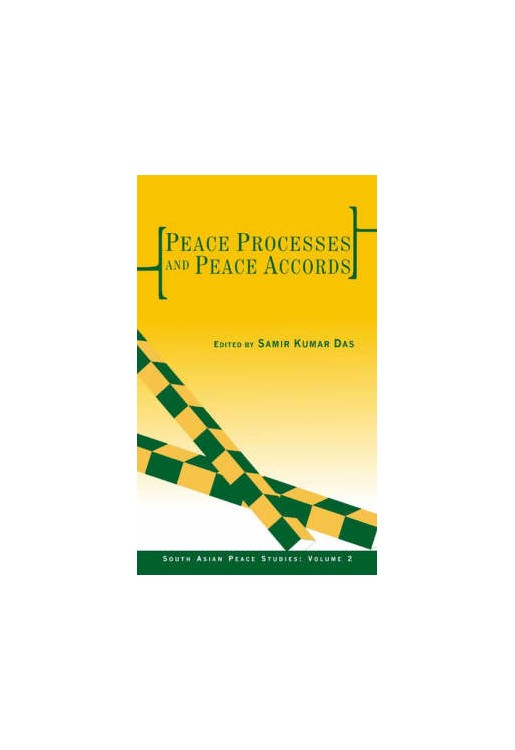The second volume in the South Asian Peace Studies series, Peace Processes and Peace Accords looks at the political question of peace from three perspectives: the process of peace; the contentious issues involved in the peace process; and the ideologies that come in conflict in this process. Arguing that peace is not a one-time event to be achieved and rejoiced over but a matter to be sustained against various odds, the contributors show that the sustainability of peace depends on a foundation of rights, justice and democracy. Peace accords, they maintain, are only a moment in the process-the very act of signing an accord could mark either a continuation of the same conflict, or simply its metamorphosis. Therefore, as this volume shows, `negotiation` should be redefined as `joint problem-solving` on a long-term sustained basis, rather than `one-off hard bargaining`.
Series Note
Preface
I. THEORIZING PEACE
Introduction - Shibashis Chatterjee
The Politics of Understanding - Ranabir Samaddar
Territory as the Kernel of the Nation: Space, Time, and Nationalism in Israel/Palestine - Oren Yiftachel
Anthropology of Reconciliation: A Case for Legal Pluralism - Pradip Kumar Bose
II. PEACE AS PROCESS
Introduction - Paula Banerjee
Nobody's Communique: Ethnic Accords in Northeast India - Samir Kumar Das
Kashmir at the Crossroads: Problems and Possibilities - Sumantra Bose
Armed Conflict in Andhra Pradesh and the Search of Democratic Space - Committee of Concerned Citizens
The Peace Process in Sri Lanka: From Confrontation to Accommodation - Jehan Perera
III. PEACE ACCORDS
Introduction - Parimal Ghosh
The Accord that Never Was: Shillong Accord, 1975 - Subir Bhaumik
Gendered Nation, Gendered Peace: A Study of Bangladesh - Amena Mohsin
Improving India-Pakistan Relations - Mubashir Hasan
The Mahakali Impasse and Indo-Nepal Water Conflict - Dipak Gyawali and Ajaya Dixit
Further Readings
Index


